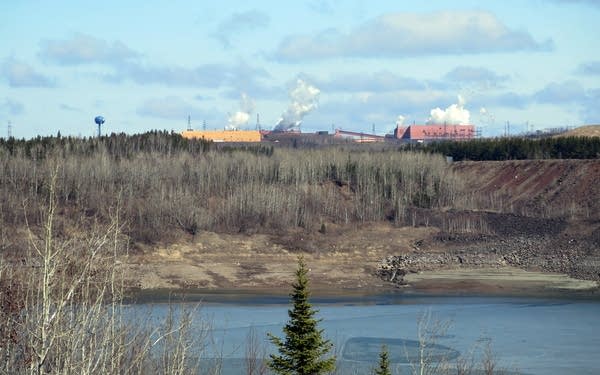Court: Regulators were correct in applying drinking-water standards to groundwater in Minntac permit
The Minnesota Supreme Court's decision reverses a lower court's 2019 decision

U.S. Steel's Minntac taconite mine and plant looms over the city of Virginia, Minn., in 2015.
Dan Kraker | MPR News 2015
Go Deeper.
Create an account or log in to save stories.
Like this?
Thanks for liking this story! We have added it to a list of your favorite stories.


